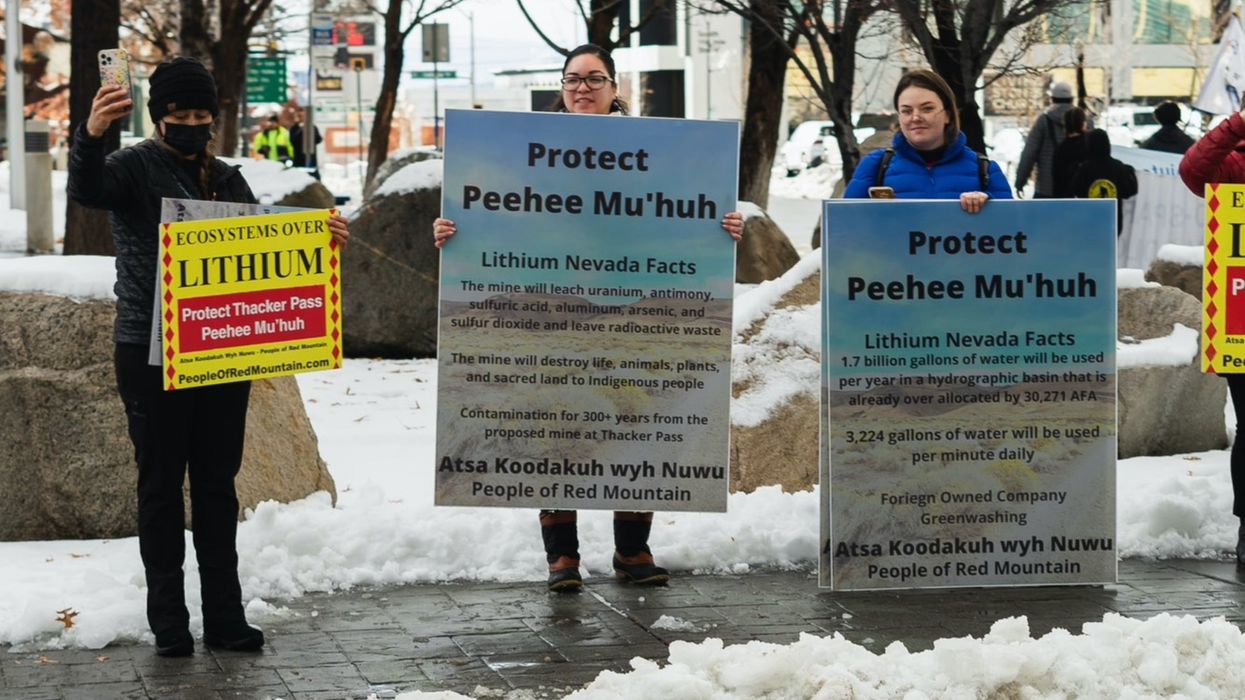Conservationists Sound Alarm as Republicans Take Aim at Endangered Species Act
"We are in a biodiversity crisis, and Congress is playing with fire," warned one wildlife defender. "These bills would accelerate extinction at a time when we can least afford it."
Green groups warned this week that a pair of Republican-led bills in the U.S. House of Representatives, including proposals to amend the Endangered Species Act and strip gray wolves of ESA protection, would, as Sierra Club said, "radically undercut the ability of the federal government to protect imperiled wildlife."
On Tuesday, the Republican-led House Natural Resources Subcommittee on Water, Wildlife, and Fisheries held legislative hearings on four bills, two of which involve the ESA.
Rep. Bruce Westerman (R-Ark.) said his ESA Amendments Act of 2025—which aims to streamline regulatory and permitting processes—is needed because "the Endangered Species Act has consistently failed to achieve its intended goals and has been warped by decades of radical environmental litigation into a weapon instead of a tool."
However, Sierra Club said Monday that the bill would "amend the ESA beyond recognition."
Congress is trying to kill the Endangered Species Act. New bill would amend iconic law's ability to protect wildlife. Today, a House committee held a hearing on a bill that would drastically limit the Endangered Species Act's ability to protect our country's imperiled wildlife.
[image or embed]
— Sierra Club (@sierraclub.org) March 25, 2025 at 10:44 AM
Earthjustice warned Tuesday that the legislation "would gut the critical protections that the ESA provides for thousands of imperiled species, upend the scientific consultation process (which has been the cornerstone of American species protection for 50 years), slow listings to a crawl while fast-tracking delistings, and allow much more exploitation of threatened species and shift their management out of federal hands to the states, even while they are still nationally listed."
Rep. Lauren Boebert (R-Colo.) said that the second bill, the Pet and Livestock Protection Act of 2025—which she introduced in January with Rep. Tom Tiffany (R-Wis.)—would "remove the ability of progressive judges to get in the way of science and allow states to set their own rules and regulations for managing their gray wolf population" by delisting the species from the ESA within 60 days and prohibiting judicial review of the action.
During his first administration, U.S. President Donald Trumpdelisted gray wolves from the ESA across most of the country, a move that was reversed by a federal judge in 2022.
Defenders of Wildlife senior attorney Ellen Richmond said Monday that "this bill is deceptively named and if enacted will directly undermine our nation's landmark conservation laws."
"Wolves play important roles in maintaining healthy ecosystems, and cutting short their recovery not only harms the species but also the incredible landscapes we all love," Richmond added.
Josh Osher, public policy director for Western Watersheds Project, said Tuesday: "We are in a biodiversity crisis, and Congress is playing with fire. These bills would accelerate extinction at a time when we can least afford it."
"The Endangered Species Act isn't just about saving wolves, grizzlies, or sea turtles—it's about protecting the ecosystems that sustain us all," Osher added. "Weakening these protections pushes our planet further into collapse. Congress must open its eyes and reject these reckless attacks before it's too late."
On Monday, dozens of green groups sent a letter to senior lawmakers on Water, Wildlife, and Fisheries Subcommittee urging them to reject the two bills, arguing they would "dramatically weaken the ESA and make it harder, if not impossible, to achieve the progress we must make to address the alarming rate of extinction our planet now faces."
The two bills come amid wider Republican attacks on the ESA by members of Congress and the Trump administration, including Elon Musk's Department of Government Efficiency. In a bid to boost logging on public lands, Trump is planning to establish a so-called "God Squad" committee that could veto ESA protections. DOGE, meanwhile, has fired hundreds of U.S. Fish and Wildlife Service employees while ordering a hiring freeze on seasonal workers tasked with species protection.
"The Endangered Species Act is one of the country's most popular and successful conservation laws, and Donald Trump wants to throw it in the garbage to pad the bottom lines of his corporate supporters," Sierra Club deputy legislative director for wildlife and lands protection Bradley Williams said on Monday. "Since day one of his administration, Trump has shown again and again that he wants to hand over control of our public lands and waters to billionaires and corporations. Imperiled wildlife will suffer the consequences."
"For more than 50 years, the United States has made amazing progress bringing species back from the brink of extinction," Williams added. "It's because of the ESA that species like the grizzly bear and bald eagle are living symbols of America and not just photos in a history book. If Trump and his allies in Congress get their way, that progress won't just come to a screeching halt—it could be completely reversed."


